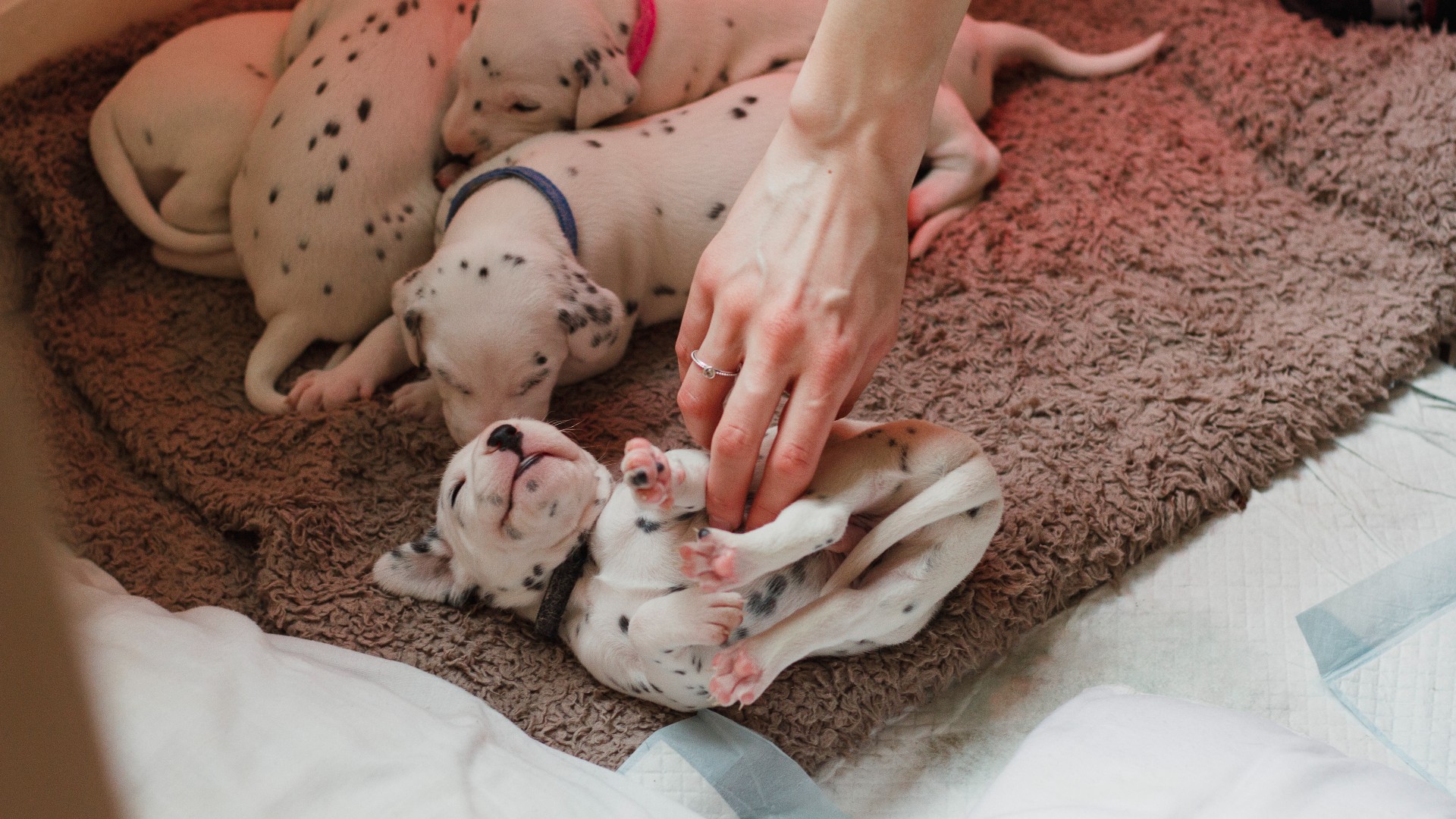Are dogs ticklish?
We know pooches love pets, but are dogs ticklish? How do you even tickle a dog?

Get the best advice, tips and top tech for your beloved Pets
You are now subscribed
Your newsletter sign-up was successful
We all know that pooches love pets, but are dogs ticklish? Most humans are sensitive on their stomachs and the bottom of their feet, erupting in giggles if touched there, but can dogs have the same sensation?
If your dog is taking a break from playing with the best dog toys, could you engage in a little tickle session? Would your dog get as much enjoyment out of it as humans do? There are two types of tickling, by the way: light tickling called knismesis which makes us shiver, and heavy tickling called gargalesis which makes us laugh.
Tickling isn't just about touch, it's a social experience that involves teasing laughter and playfulness. You might wonder if dog's laugh, but they definitely do love to play, so it's no wonder humans ask if dogs are ticklish or not. Some humans are more ticklish than others, with certain people capable of withstanding any sort of tickle attack and others being far too sensitive to even get a pedicure. Can dogs be the same way? If they are ticklish, are some dogs more ticklish than others? Are certain spots more sensitive? Is tickling part of how to play with a dog?
Luckily for you, we have scientific research to help us figure out the answer to the age-old question: are dogs ticklish - and it looks like that answer is yes. Dogs don't feel heavy tickling, or gargalesis, the same way we do, but they are certainly ticklish. Read on for more details about ticklish dogs.
Where are dogs ticklish?

According to a Reader's Digest interview with Dana Varble, chief veterinary officer for the North American Veterinary Center, dogs are indeed ticklish, and have the same nerve endings and sensations in their skin and fur as humans. Varble says that, "just like us, a dog’s reaction depends on how they were tickled when they were growing up and how sensitive they are. In other words, some dogs are more ticklish than others.”
Like humans, dogs will have a variety of responses to being tickled, and knowing how to read dog body language can help you suss out their response. According to dog behavior consultant Erin Askeland, signs your dog is ticklish could include "Jerking around, wiggling, or kicking their leg in the rhythm of the tickle. They might also engage in head tilting and body contorting when you find a ticklish spot." But there are more involuntary movements your dog may do when tickled, like pulling their feet away or flicking their ears - some dogs may even smile a little, which looks like them wrinkling their noses and revealing their teeth. Some dogs may even make a breathy, panting sound while being tickled, which is as close as we'll get to dog laughter.
So, dogs are ticklish - but where on their body are they ticklish? Dogs, like humans, have very ticklish feet! If you tickle the hair between their toes and their foot pads, you may notice your dog twitching or kicking out. That's because their feet are ticklish! But dogs can also have involuntary responses to being scratched or tickled on their back, neck, and belly. Even rubbing their fur or hair against the grain can elicit a response!
Get the best advice, tips and top tech for your beloved Pets
How to tickle a dog
How do you tickle a dog? Just like you would a human really! Don't tickle a dog you've just met, and make sure the dog you want to tickle is comfortable and in a safe environment for them. Sometimes a dog isn't in the mood to be tickled - just like sometimes we aren't in the mood for it either! If the dog in question is comfortable and confident around humans and can be handled, go for some belly rubs to get a good tickle going. Lightly wiggle your fingers on their belly, and if your dog puts its feet up in the air, take advantage of the exposed toes and give them a good tickle.
Dogs can have different tickle spots just like humans, so you may need to do some tests to see where your dog is ticklish. It may be a different spot than other dogs you know - maybe your parents' dog has an especially ticklish neck while your best friend's dog goes absolutely crazy for belly rubs. You'll learn very quickly where a dog is ticklish, as they're certain to have a very silly and obvious reaction.
But remember, dogs don't always want to be tickled. If your dog is feeling unwell or is stressed, don't try and tickle them!
Is it bad to tickle your dog?
It's not bad per se, but some dogs may not enjoy it as much as others. As we mentioned earlier, if a dog is uncomfortable in a situation or unfamiliar with you, it won't want to be tickled. If you try to tickle a dog and it gets up and walks away, growls, or seems otherwise irritated, tickling may not be on the menu. After all, respecting our dog's space is just one of the ways to be a responsible dog owner.
If your dog reacts as if it's in pain when you touch a specific area, you may want to consult your vet. Dogs are indeed ticklish, but just like humans, every dog is different!
If you enjoyed this feature why not check out "Why dogs love belly rubs?"
